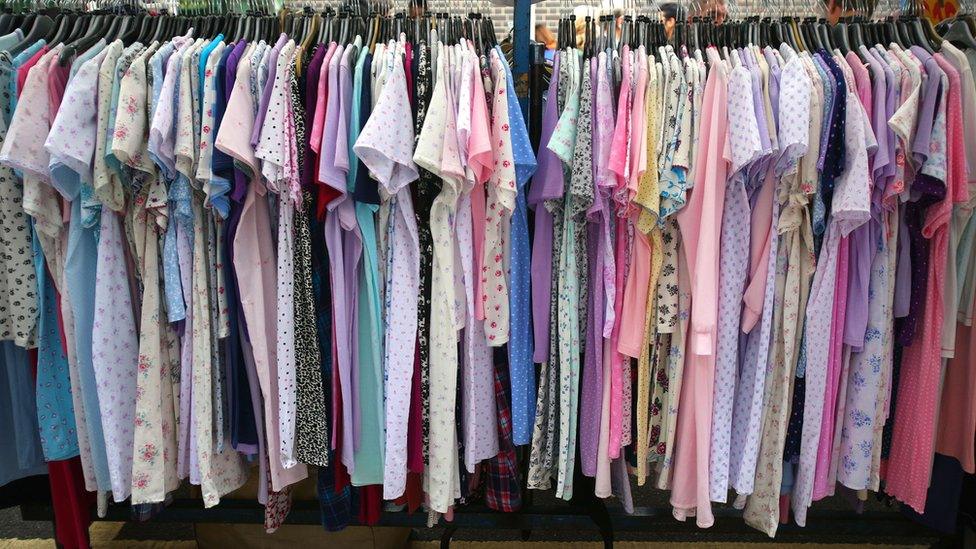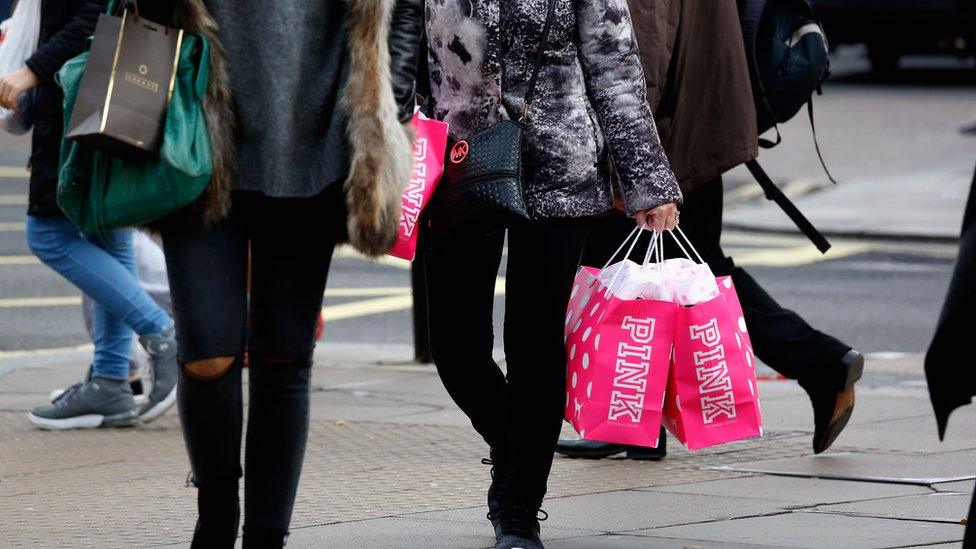Why the inflation figure matters for the PM
- Published
- comments

Ask senior officials in Number 10 what the most important issue is for voters and it isn't long before they point out that an economy "that works for everyone" is more than just a slogan.
A toxic mix of higher inflation, stagnant wage growth and falling consumer confidence means that 2017 and 2018 could see that economy in dark and chilly waters, and not working for many people.
The government will be expected to be ready with the lifeboats.
Lifeboats which many believe are on the small side and possibly full of holes.
Britain still has considerable debts, is running a deficit and has a productivity problem - meaning the economy is not producing sufficient economic wealth to increase general incomes.
So far, the UK economy has performed robustly in the face of dire warnings that a vote to leave the European Union would lead to an immediate and negative impact on economic performance.
Consumers have ignored the Cassandras standing at the shore, warning of shark-infested seas ahead, and have gone swimming anyway.
Today saw the first evidence that one of those sharks - inflation - is starting to nibble at the bathers' toes.
Inflation's rise to its highest level for two years can be directly linked to the value of sterling, which has fallen by 16% this year, mainly following the referendum.
As the pound falls in value, import costs of staples like food and fuel rise.
That starts feeding through to prices that consumers pay.

Of course, inflation is still at historically low levels - and no one is predicting a 1970s-style spike.
Meanwhile, a weaker pound encourages exports as it is cheaper to sell British products abroad.
But many are arguing that where clothing and fuel prices go today - up compared to a year ago - food is likely to follow, cutting into people's already stretched finances.
For the moment, supermarkets and their suppliers (remember the Marmite row?) are soaking up the larger part of higher import costs by reducing their profit margins.
The cut-throat food market means that the run-up to Christmas - retailers' most important time - is not a time for widespread price increases.
Some argue that this caution will not last much into the New Year.
If inflation does maintain its upward trajectory, then the Bank of England will need to consider the path interest rates might take.
Higher inflation is usually controlled by higher interest rates, but that reduces business and consumer spending power because the cost of borrowing money increases.
Less spending in the economy tends to be deflationary.
So if rates do rise, then that adds to the "cost of living" debate.
A debate the prime minister knows will dominate her time in Downing Street.